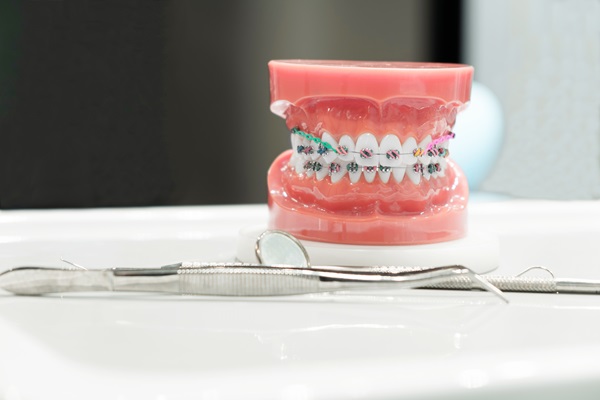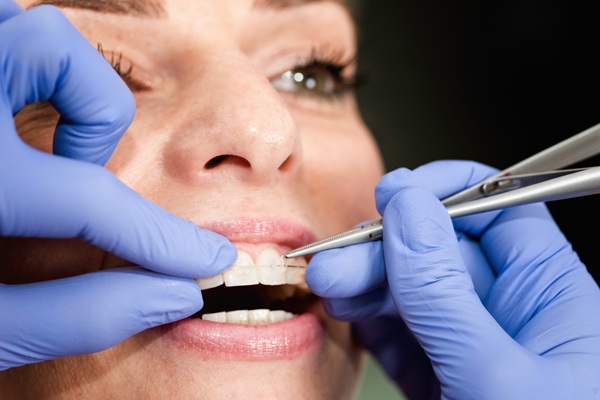What Are Corrective Braces?

Corrective braces are ideal for achieving an attractive smile as they can create a symmetric and even smile. This can also provide oral health benefits and reduce the risk of concerns like cavities. In this review, we discuss the basics of corrective braces to help you decide if they may be right for you.
Corrective braces explained: Definition, benefits, and more
Here is everything to know about corrective braces, so patients can be well-informed before visiting an professional for a consultation. We define corrective braces, highlight the benefits, and discuss when a dental or professional may recommend them.
Corrective braces defined
Corrective braces are a form of treatment that uses metal brackets and wires. With this method of care, teeth are shifted into their proper position over time. There is a range of corrective braces types:
- Traditional (metal) braces
- Ceramic braces
- Lingual braces
- Invisible braces
The best type of corrective braces depends on the patient's preference and the severity of the misalignment that needs to be addressed. For instance, invisible braces may work well for an adult with a mild misalignment, whereas someone with a severe misalignment may require metal, ceramic, or lingual braces.
Issues corrective braces fix
Corrective braces are the most effective solutions for treating all types of teeth and jaw misalignments. They can treat mild to severe cases. Specifically, the types of issues that corrective braces can fix are:
- Overcrowding
- Gapped teeth
- Crooked teeth
- Protruding teeth
- Underbite
- Overbite
- Crossbite
Corrective braces benefits
Many people are familiar with the cosmetic benefits of corrective braces, including a more symmetric smile. Most patients feel that this gives them more confidence and is more attractive to others. There are also oral health benefits of corrective braces. For instance, a straight smile makes it easier to protect all areas of the teeth and reduces the risk of cavities, oral infections, and gum complications.
Treatment process
The treatment process for corrective braces begins with a consultation. During the first visit, the dental staff can evaluate the patient's teeth and jaw alignment and recommend a treatment plan. The patient may choose the type of corrective braces on this visit before scheduling a follow-up to start the process. Some patients may require specific restorative procedures before starting corrective braces, including dental fillings, gum disease treatment, and teeth extraction.
Once the mouth is prepared, the dentist installs the braces, which usually involve metal or ceramic brackets and wires (clear aligners do not require metal brackets and wires). The wires are tightened periodically as teeth move into their proper positions. After treatment, the patient is given a retainer to ensure that the teeth do not shift back to their original positions. Overall, the process can take six months to two years.
Contact our office to schedule a consultation
Are you considering corrective braces? If so, then contact our office. We take genuine pride in helping our patients achieve an attractive and healthy smile that gives them the confidence that they deserve each day. So, why wait? Get in touch today, and schedule a consultation at a time that is convenient for you.
Request an appointment here: https://www.bracesbyabbadent.com or call Braces By Abbadent at (563) 484-5202 for an appointment in our Dubuque office.
Check out what others are saying about our dental services on Yelp: Corrective Braces in Dubuque, IA.
Recent Posts
You may have seen someone wearing ceramic braces without even knowing it. These are most well-known for their discreet appearance and are ideal alternatives for patients who are concerned about how noticeable their braces would look. Read on to learn more about why ceramic braces are trusted among orthodontic professionals.Ceramic braces are among the most…
Space maintainers are great resources that are used in dentistry and orthodontics. They are small, metal dental pieces that are placed where a tooth once was, whether it be an adult or baby tooth. Keep reading to find out more about space maintainers.Outlined below are a few things to know about space maintainers, including what…
Orthodontic treatments are not just for children and teenagers. Adult braces are becoming increasingly popular due to advancements in orthodontic technology and the growing awareness of the importance of a healthy, well-aligned bite. For those considering adult braces, there are a few key things to remember before starting the journey toward a straighter smile. Misaligned…
Teeth straightening is a popular dental procedure for people who want to improve their smile. There are several methods that people can choose from that can resolve a wide range of dental issues. If you want straighter teeth, you can definitely benefit from orthodontic treatment. Read on to learn about the different types of braces…


